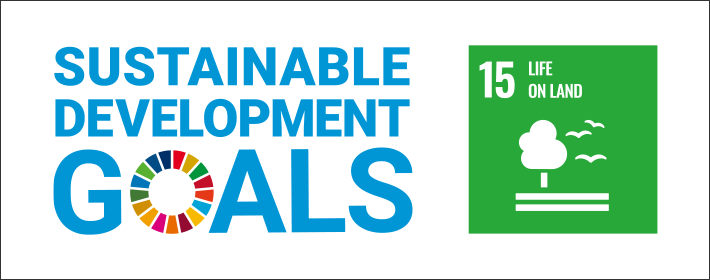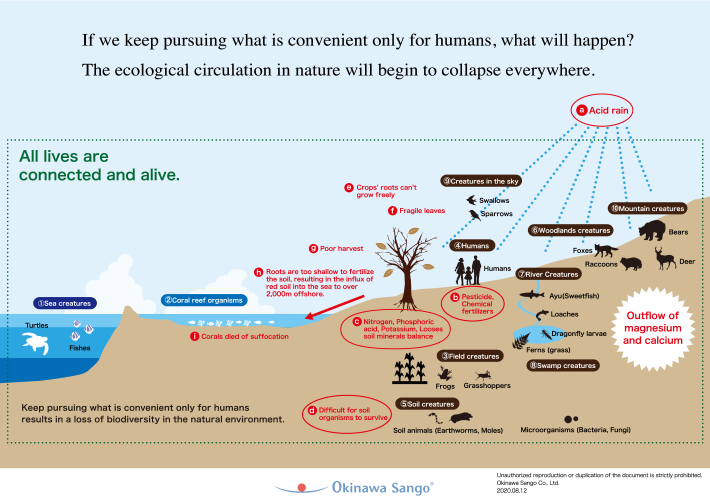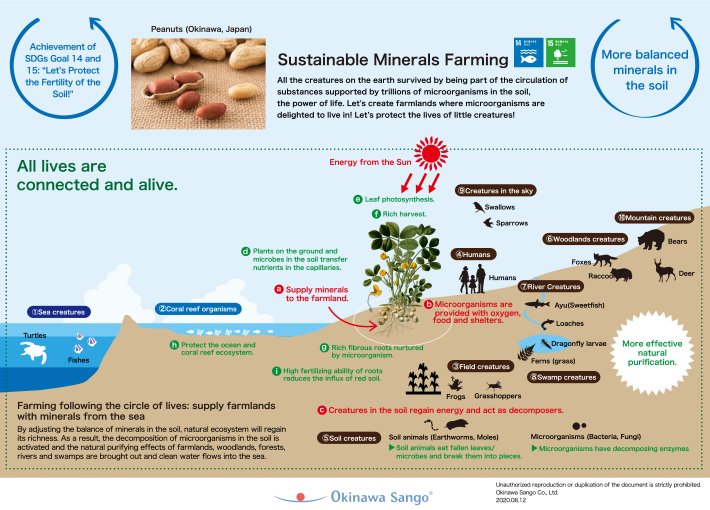Coral minerals to protect the soil, purify water and grow delicious vegetables.

We at Okinawa Sango Co., Ltd. have been blessed with many opportunities in the past 34 years since our establishment, including meeting many Okinawan farmers who are full of passion.
Among them, the pure thoughts of Mr. and Mrs. Shimabukuro at Mana Mango Farm in Nago City touched my heart. One day, while browsing among the internet, a book entitled Nel contagio (translated as The Age of Coronavirus in Japanese) written by an Italian author Paolo Giordano came into my view. When I finished reading it, I was overwhelmed. From a scientific view, the book dug deeply into the infection of new coronavirus, and asked us the important questions “What should we keep, what should we give up, and how should we live?”
“What a wonderful thinker,” I thought… and I asked myself the same questions: “What should we keep, what should we give up, and how should we live?”
And they kept me thinking.
The next day, Mr. and Mrs. Shimabukuro at Mana Mango Farm sent me some beautiful mangoes that I have never seen before.
As I kept wondering what I could do, at that moment the thought came to me,
“This is it!”
“This is what Okinawa Sango should do!”
“We can do this!”
Mr. and Mrs. Shimabukuro at Mana Mango Farm have decided to grow mangoes in Okinawa without using pesticides and chemical fertilizers, and they have been working so hard for years. Their belief and determination are very noble.
In his book, Paolo Giordano wrote that, “If we don’t change, the same situation caused by the coronavirus this time will happen again.”
The book further illustrates that “The cause of this pandemic lies in the dangerous way we humans treat nature and environment, destruction of forests, and our thoughtless act of consumption.”
“This suffering makes us realize the truth, which is usually blurred and invisible to us, and make us reconsider our priorities.”
There have been suggestions similar to Paolo Giordano’s, and I hope that in response, more experts would rise up to mee the challenges.
Let us return to issues in Okinawa. In a humid subtropical climate as Okinawa, the difficulties are beyond imagination to grow crops without using pesticides or chemical fertilizers.
Nevertheless, Mr. and Mrs. Shimabukuro rose up to meet the difficult challenge, showing us the power of a pure heart and the right way to live as human beings. The wonderful mangoes they delivered to me are the best illustration of that.
Following the example of Mr. and Mrs. Shimabukuro, it appears to me that it is time for us to “take a good look at the reality, and take actions”.
For days on the news, we learnt that cliffs are collapsing and rivers are overflowing.
To me, these are urgent messages from our mother nature.
What should we keep, what should we give up, and how should we live?
In response to these questions raised by Giordano, I would like to start with what I can do.
Nature is alive in fertile soils.
There exists the skillful decomposition and purification by trillions of microorganisms living in the soil, the purification by the soil and river water, and the circulation of substances by living things that has constantly protected the earth.
We might have made a huge mistake.
I would like to pay my heartfelt respects to those who changed their farming method to the one allowing many little creatures to live.
The little creatures are diligent workers.
Mangoes from Mana Mango Farm emit a rich aroma that fills my house.
Below are two illustrations showing the differences between what is happening now, and the vision depicted by Mr. and Mrs. Shimabukuro who grew those amazing mangoes.
Switching to their farming method will lead us from pursuing material civilization to a sustainable and happy society.

